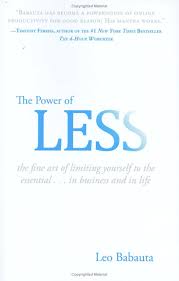 So I have to preface this review by saying,
So I have to preface this review by saying, a) This book was written in the 1920's.
b) This is a book about personal finance and budgeting.
c) I absolutely love this book and had so much fun reading it, I went back three more times!
Ok, let me explain: I actually bought "The Richest Man in Babylon" in Audiobook form about a year ago. There was a time when I would incorporate Audiobooks into my morning routine (multitasking), but now prefer the selection of Amazon.ca hardcovers and convenient delivery. If you want to pick this up on Audible.com, or download the Audiobook from iTunes, it is an absolute treat. If you get the actual book, it's pure genius and full of charm, but you won't get the great voice acting.
I know. Voice acting? Here's how it works: Clason was a businessman and early 'motivational' guru and would travel around the US distributing pamphlets that would show people how to save money, and build wealth. He didn't just say, 'Do this, do that', though; instead, he created parables set in Ancient Babylon, which would be more engaging and enjoyable to read than the driest subject on Earth...personal finance and budgeting.
So now you can imagine why I had so much fun 'listening' to this book. Set in Ancient Babylon, it tells tales of common men getting together to discuss how they can emulate the local hero, The Richest Man in Babylon (who himself, was a self-made man). The whole thing, as a parable, is one huge metaphor. First you fall in love with the story, then you feverishly jot down notes as you realize just how brilliant this is. The Babylon setting simplifies the whole thing into great archtypes, not overly confusing 401k, IRA, gibberish (which by the way aren't strategies at all, they're just tools).
As the richest man in Babylon relates in this book, even he can't afford to satisfy all his desires, and his stomach cannot fit all the food he might desire to eat each night. Even he is limited by the time on this earth, so he spends his time carefully (budgets his time?). Even he, with all his endless wealth, has a budget. And that budget works for him to make sure each meal is delicious, each hour is spent thoughtfully and enjoyably, and each dollar is spent usefully and intelligently. And here's the kicker: when he eats, he does not mourn that which had no space to eat. He is content with his choices.
Ok. So, so far, absolute gibberish and fluff, right? First we have to get past this idea that you have a money problem. You don't. If you made a million dollars a year, your bad habits would scale and you'd be just like those guys who win the lottery and squander it in 6 months.
The truth is, the fallacy of 'a few more bucks' is so ingrained in our mentalities, that we put off thinking about this stuff until we have more money. When that happens, we spend it. Look, it's pretty simple. In the West, we're just coming out of a huge recession, and yet the Stock Market seems to be ticking along just fine. What does that tell us? That people are still clinging to their credit cards. If you don't have a problem with credit cards/loans, you're the exception, not the rule.
What Clayton does with this book is demonstrate how the very poorest of tramps can start building wealth right now. Today. Is it simple? Sure. Can anyone do it? Yeah. If you have discipline, you can start paying down all your debts and building your own empire.
I'm gonna try not to plagiarize the book by reciting its laws. Go get it. I can, however, give you my own story. After reading this book, I jumped into Excel and starting doing the calculations on the elements it teaches you to focus on:
1) Pay down your debt
2) Contain your monthly expenses
3) Invest in something that will grow
What's hard about this? The initial 'woe is me' complaint that most people have stops them at step one. People also have this annoying fear of money: they'd rather not know how much credit card debt they have. I check every week, to make sure that number is going down.
Lastly I want to say this: if you take one thing away from this book, its that your salary doesn't matter as long as you have discipline; with discipline, you can eliminate your debt and be on the road to prosperity, health and ultimate happiness. Without discipline, you can be Nicholas Cage. Take your pick.









